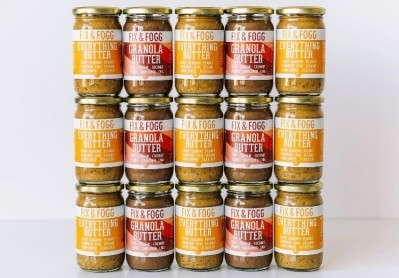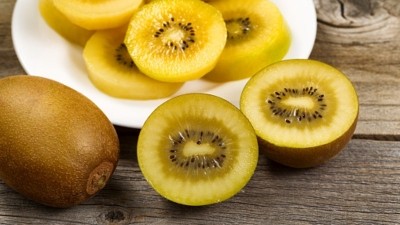From general foods to functional foods: How a NZ organisation is creating opportunities for exporting indigenous functional ingredients

This is according to AuOra Wakatū Incorporation – a Māori organisation based in Te Tauihu, top of the South Island.
In fact, the company will begin its first export of green kiwi fruit powder to Japan for use in functional foods in the upcoming months.
New Zealand is traditionally known for its dairy exports, especially dairy powder for infant formula products and The a2 milk Company has been highlighted as one of the country’s most successful business in recent years.
However, latest statistics from the government has shown large fall in dairy and meat exports.
Exports decline
Stats NZ reported in February that the value of total goods exports fell 10 per cent in January this year from January last year to NZD$4.2bn (US$2.94bn), largely due to a decline in dairy and meat exports.
Exports of milk powder was down NZD$97m (US$68m), butter down NZD$62m (US$43m), and whey down NZD$31m (US$21m) from January 2020.
“The drop in dairy exports was partly due to a fall in quantity for whey products to one of New Zealand’s top export trading markets, the United States. Exports of dairy were the largest fall for the US in January 2021, specifically exports of whey.
“China was the only one of our top trading partners to see a rise in January 2021 (following a yoy decline of 21 per cent in December 2020),” international trade manager at Stats NZ, Alasdair Allen said.
High value nutrition
Even before the decline in key foods export, there has been a push in researching and developing high-value nutrition food products, in which the country’s High Value Nutrition programme is playing a major role in.
The industry itself also has its own initiatives in studying and promoting the export of indigenous ingredients with health benefits.
For AuOra Wakatū Incorporation, which focuses on health solutions, food and drink business, and property management businesses, the company hopes to develop products that could confer immune, digestive, metabolic health, and improvements to mental wellbeing with its B2B clients.
“We hope to co-design with the customers on the solutions as supposed to develop products and do a product push.
“It is about being able to meet the needs of the consumers when it comes to health and wellbeing in functional foods, ingredients, and supplements,” said general manager Miriana Stephens.
What’s up?
The organisation’s upcoming project is to export its first batch of green kiwi fruit powder – said to contain a bioactive for relieving constipation – to Japan in the upcoming months.
It is also studying the gold kiwi fruit powder which is said to aid digestion and promote the growth of good bacteria.
“We have received good customer feedback and we are looking at other opportunities, such as other formats that the kiwi fruit powder can go into. For example, it could go into a beverage, cereal, and yogurt,” Stephens said.
She added that the organisation has been exploring the functionalities of other indigenous ingredients, including botanicals, marine species, fungi, bacteria, and yeast.
In fact, it has finished mapping out over 2,000 plants found in the region. Out of the 2,134 plants identified, 69 are found only in the Te Tauihu region.
The next step is to study their traditional usages, their potential health benefits based on conventional scientific evidence, before deciding how the ingredients could be used in functional foods or supplements.
In fact, validating the claims and efficacy of the ingredients is regarded as the first step. As such, the organisation is partnering tertiary institutions such as the Crown Research Institute in its research efforts.
At the moment, the organisation is also conducting a number of clinical trials with its research partners, including a study on the kawakawa plant’s effects on fatty acid and glucose metabolism.
Markets
China, US, and Australia are traditionally the top export destinations for New Zealand food products.
However, when it comes to functional foods and ingredients, the opportunities are also seen in Asian countries that have a robust dietary supplement markets, such as Japan, South Korea, Taiwan, Thailand, and China.
“For us, we see Asia as having the biggest opportunity. Traditionally, we are probably more reliant on China, Australia, and the USA [on the general food and beverage exports], but for health, nutrition, and wellness products, we think the opportunities are mainly in Asia.
“They all understand the link between the food that they eat and the nutrition that they gain from it and so, that's the focus of our business,” said Andy Elliot, research and business development manager at AuOra Wakatū Incorporation, also a Nuffield Farming Scholar. The Nuffield Farming Scholarships Trust allows scholars to travel overseas to learn new ideas and technologies for improving the local agriculture sector.


















